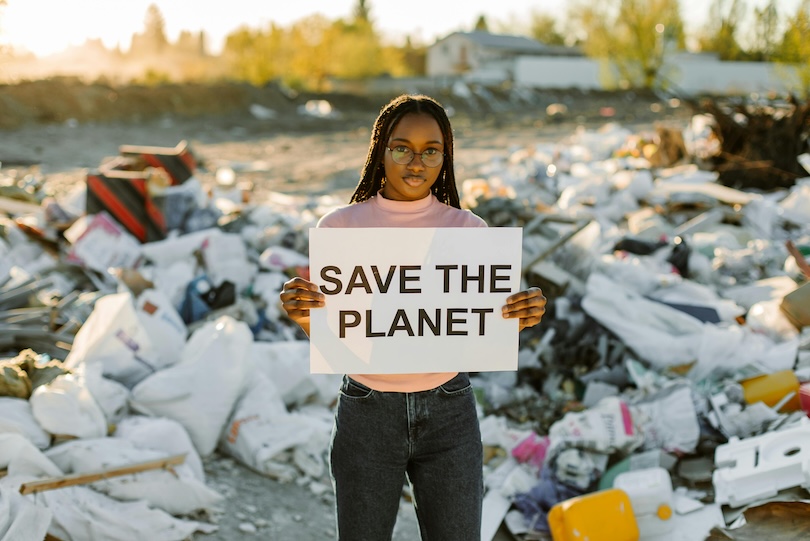Few days ago, delegates from nearly 200 countries, leaders of business and finance, and representatives of civil society gathered in Dubai from November 30 to December 12 for the COP28 climate protection conference with the aim of fast-tracking the transition to a clean-energy future.
In an era defined by rapid industrialisation and technological advancements, the Earth is facing unprecedented challenges, with climate change and pollution at the forefront. The urgent need for climate protection has become a global rallying cry as societies grapple with the far-reaching consequences of environmental degradation. Here, we will explore the critical importance of climate protection against pollution and the collective efforts required to secure a sustainable future.
Climate Protection – Understanding the Impact
The term “climate protection” encompasses a broad spectrum of activities aimed at mitigating and adapting to the adverse effects of climate change. Pollution, a significant contributor to climate change, manifests in various forms, including air, water, and soil pollution. The consequences of unchecked pollution are dire, affecting ecosystems, human health, and the overall well-being of the planet.

Air pollution, driven largely by industrial emissions and vehicular exhaust, is a major factor in climate change. Greenhouse gases such as carbon dioxide (CO2) and methane trap heat in the atmosphere, leading to global warming. The resulting climate disruptions include rising temperatures, extreme weather events, and disruptions to ecosystems.
Water pollution, caused by industrial runoff, agricultural practices, and improper waste disposal, poses a severe threat to aquatic life and ecosystems. Contaminated water sources not only harm wildlife but also endanger human populations that depend on these resources for drinking water and agriculture.
Soil pollution, often a consequence of industrial activities and the use of harmful agricultural practices, depletes soil fertility and affects the quality of crops. This, in turn, disrupts food chains and compromises the health of both the environment and those who rely on it for sustenance.
Collective Responsibility
Addressing climate change and pollution requires a concerted effort on a global scale. Governments, businesses, and individuals all play crucial roles in the pursuit of climate protection. Sustainable policies, stringent regulations, and innovative technologies are essential components of the collective response to this pressing issue.
Governments worldwide must prioritize environmental conservation and enact policies that promote sustainable practices. Investing in renewable energy sources, regulating emissions, and incentivizing green technologies are vital steps toward mitigating the impact of climate change. International collaborations, such as the Paris Agreement, exemplify the global commitment to climate protection and the recognition that no single nation can tackle this challenge alone.
Businesses, as significant contributors to pollution, have a responsibility to adopt eco-friendly practices. Embracing sustainable production methods, reducing carbon footprints, and implementing circular economy principles can contribute to climate protection. Moreover, consumers’ increasing demand for environmentally conscious products and services can drive market forces toward sustainable solutions.
Individuals, too, can make a meaningful impact by adopting eco-friendly lifestyles. From reducing personal carbon footprints through energy-efficient practices to making sustainable consumer choices, every individual has a role to play in climate protection. Small, everyday actions collectively contribute to significant positive changes.
Innovation and Technology
Advancements in technology play a pivotal role in the fight against pollution. Innovations in renewable energy, such as solar and wind power, offer sustainable alternatives to traditional fossil fuels. Electric vehicles, energy-efficient appliances, and smart infrastructure contribute to reducing carbon emissions and promoting a cleaner environment.
Technological solutions also extend to waste management and recycling. Cutting-edge technologies can facilitate the efficient sorting and recycling of materials, reducing the burden on landfills and minimizing environmental harm. Moreover, innovations in air and water purification technologies are critical for restoring the health of ecosystems affected by pollution.
Climate protection against pollution is a shared responsibility that transcends borders and ideologies. The consequences of inaction are too severe to ignore, as climate change continues to accelerate, posing a threat to the very fabric of our existence. By understanding the interconnectedness of environmental issues and embracing sustainable practices, we can collectively work towards a healthier planet.
Governments, businesses, and all of us must unite in their commitment to reducing pollution and mitigating the impacts of climate change. Through policy reforms, sustainable technologies, and conscientious lifestyle choices, we can pave the way for a sustainable future—one where climate protection is not just a buzzword but a fundamental ethos guiding our actions for the well-being of the planet and future generations.

Comments
2 responses to “COP28 Climate Protection: Taking a Stand Against Pollution for a Sustainable Future”
My partner and I stumbled over here from a different web page and thought I might as
well check things out. I like what I see so now i am
following you. Look forward to going over your web page yet again.
Thank you for support!